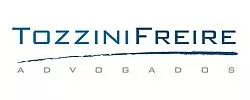On September 21, 2017, the Federal Revenue of Brazil (RFB) published Consultation Ruling COSIT RFB 443/2017, which denies an exemption of the Withholding Income Tax (IRRF) for earnings of Certificates of Real Estate Receivables (CRI). The petitioner, a Brazilian subsidiary of a Canadian Government Agency, argued that CRI earnings should be exempt from IRRF because:
(1) CRI earnings, when paid to Agencies exclusively owned by the Canadian Government, are exempt from IRRF pursuant to Article 11(3) of the Brazil-Canada Tax Treaty; or
(2) Earnings paid to a foreign Government from a Brazilian source are exempt from IRRF pursuant to Article 688 of the Income Tax Regulations, and considering that the relevant Agency is exclusively owned by the Canadian Government, it is in essence a part of the Canadian Government.
The denial of RFB in Consultation Ruling 443/2017 is based on two key arguments. They are:
(i) The exemption in Article 11(3) is applicable to interest. Since CRI earnings are not interest, the exemption in Article 11(3) does not apply.
(ii) The exemption of Article 688 of the Income Tax Regulations is textually applicable to foreign Governments only, not to agencies of foreign Governments. Since Article 111 of the Brazilian Tax Code (CTN) requires that exemptions must be interpreted literally, Article 688 cannot be used to support an exemption of IRRF for CRI earnings of the Canadian Government Agency (because it is not the Canadian Government itself, even though it is exclusively owned by the Canadian Government).
Our Analysis:
We could criticize both arguments used by RFB to deny the exemption of IRRF in this case, but the argument in (ii) merits a more scholarly discussion about the definition of "literal interpretation" used by Article 111 of CTN. Some would argue that "literal" means "textual", but an Agency exclusively owned by the Government of Canada is a part of that Government, and therefore should be blessed with the exemption of IRRF found in Article 688 of the Income Tax Regulations. No "extensive" or "systematic interpretation" is required to reach that conclusion, even if one could argue that an Agency (as opposed to an Office or a Department) might engage in activities that fall outside of the scope of the "typical" activities of a Government, and therefore should be treated differently. That counterargument would be factually incorrect and unsustainable overall, due to the absence of a requirement in Article 688 that the earnings exempted from IRRF must be earnings, for example, "which are not derived from the normal course of typical business activities."
We believe that the strongest argument of the taxpayer here (in fact, the Brazilian subsidiary of the relevant Canadian Government Agency, which is liable for the collection of IRRF) is (1) above. RFB, therefore, is incorrect in its position stated in (i) above, simply because CRI earnings are included in the definition of interest for Treaty purposes (which is the relevant definition for granting or denying benefits involving interest in the Treaty). See the text of Article 11(4) of the Treaty below:
The term "interest" as used in this Article means income from debt-claims of every kind, whether or not secured by mortgage , and whether or not carrying a right to participate in the debtor's profits, and in particular, income from government securities and income from bonds or debentures , including premiums and prizes attaching to such securities, bonds or debentures, as well as income assimilated to income from money lent by the taxation law of the State in which the income arises. However, the term "interest" does not include income dealt with in Article X such as income from debt-claims which corresponds to a participation in the debtor's profits.
Notice that Article 11(4) does not state that a payment must be labelled as interest in order for the IRRF exemption to apply (in the case of a remittance from Brazil to Canada). All that matters is that the income in question falls under the definition of Article 11(4) above. If it does, it is interest for Treaty purposes, and its payment from a Brazilian source to a Canadian Government Agency must be exempted from IRRF in accordance with Article 11(3).
Now, see the legal definition of a CRI, pursuant to Article 6th of Law 9,514/1997:
The Certificate of Real Estate Receivables (CRI) is a nominative credit bond, freely negotiable, backed by real estate credits, which constitutes a promise of payment in cash.
That provision alone is capable of placing CRI earnings into the definition of interest in Article 11(4) of the Treaty, because, as seen above, it is immaterial that the actual payments derived from a CRI are labelled as interest. Regardless of that, Article 7th, item VIII, of Law 9,514/1997 establishes that one of the necessary features of a CRI is the stipulation of an "interest rate, fixed or fluctuating, and the dates of its payment, with the possibility of its capitalization." Also, the website of the Brazilian São Paulo Stock Exchange (BMF/BOVESPA) establishes that CRI earnings will generally be labelled as interest (alternatively, they may be remunerated via monetary adjustments).
Our last comment about that Consultation Ruling relates to the Commentary provided by the OECD to its Model Convention in 2014. In the reservations made to the Commentary on Article 11(3) in 2014, Canada has reserved the right "to amend the definition of interest so as to secure that interest payments treated as distributions under [its] domestic law fall within Article 10." (See p. C(11)-20.) Even if Canadian Law determined that CRI-like earnings should be regarded as distributions and therefore subject to Article 10, that reservation would not impact the application of the Treaty by Brazil, both because Brazil is not bound by Canada's interpretation of the Treaty in its decision of whether to impose IRRF or not on CRI earnings, and because Brazil is yet to become a member of the OECD. However, more importantly, in its capacity as a key partner of OECD, Brazil has declared positions on Article 11(3) which actually expand its scope: one relates to the inclusion of penalty charges for late payment (as established by domestic law) and the other considers as interest "any other income assimilated to income from money lent by the tax law of the Contracting State in which the income arises." (See p. P(11)-2.)
The content of this article is intended to provide a general guide to the subject matter. Specialist advice should be sought about your specific circumstances.


